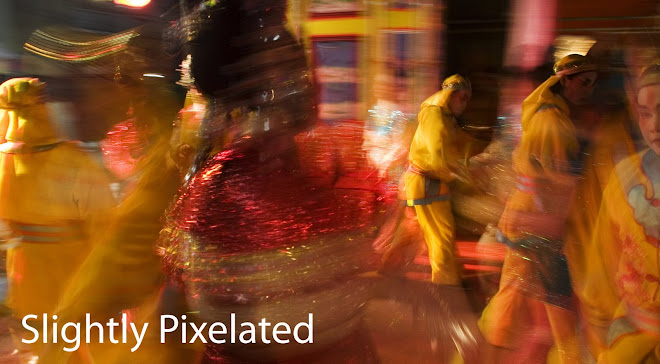It's hard to know if one should laugh or cry. Thailand's crisis has taken on the air of a black comedy.
Two days ago police officers sat down with the leaders of the People's Alliance for Democracy (PAD) a minority movement that has for months occupied Government House and for the past 7 days the nation's two main airports.
The purpose of their meeting?
To discuss improved security for the demonstrators who have been the target of repeated grenade attacks resulting in scores of injuries, some serious.
Press pause. Improved security for the demonstrators?
Yes Thailand's police force is now sitting down with the leaders of a movement that illegally controls some of the nation's most essential infrastructure.
Instead of arresting the PAD's leaders and clearing the airports of protesters, Thailand's police force is discussing ways to improve security for PAD protesters.
Yesterday PAD supporters were allowed to leave the protest site at Government house and move to the airports occupied by their fellow demonstrators. The police and security forces did nothing to stem this migration which will greatly swell the numbers holding the airports, rendering the task of dislodging them even more problematic.
Meanwhile, electricity continues to flow to the airports. Air conditioners continue to cool the main terminal building at Suvarnabhumi International Airport; lest the protesters holed up there suffer any discomfort. Suvarnabhumi has become a roomy dormitory for PAD protesters who show absolutely no sign of moving out.
By contrast, approximately 250,000 international travelers must endure the chaos of U Tapao the military airport, designed for some 400 passengers per day, that is now the scene of tumult as tens of thousands of frustrated and anxious travelers, innocent victims of this black comedy, cram into its facilities. Others must travel up to 10 hours by bus to reach Phuket airport in the south, another alternative exit point.
How can one make sense of a protest movement that in its attempts to overthrow an elected government and install a new political process, is prepared to scuttle the very ship in which its supporters, and all Thais, must sail in the months and years to come?
For the actions of the PAD, however honorable their motives may be, are scuttling Thailand's once healthy economy. Investors are fleeing. Exports are literally rotting. Tourists are canceling holidays as fast as they can. The lifeblood of this economy is draining away.
Adding to the absurdity, and adding more dark news to the crisis, the UK's daily Telegraph this week announced that Thailand's was the 7th most dangerous place on earth. Little matter that it is surely more dangerous to walk the streets of London late on a Friday night. The damage has been done. It will take Thailand many, many months, if not years, to recover from the economic wounds inflicted by the current impasse.
The government, for its part, must share the blame for this disaster. It has had numerous opportunities to put a stop to the protests. Yet the PAD, strangely, has been allowed to expand its activities virtually unchallenged. The government, underscoring its own weakness, continues to hide, fearful and cowed, in the northern capital of Chiang Mai; unwilling to confront head-on a crisis which it bears the responsibility of resolving.
Such behaviour is stretching the very definition of government. At present, Thailand does not appear to be governed in any 'normal' sense of the word. Clearly, powerful forces are at work but among these the elected government does not, apparently, wield sufficient influence to deploy such basic tools of state as the police and army.
Which brings us to the role of the judiciary. Here again, Thailand's crisis is illustrating that traditional frames of reference no longer fit. The judiciary, theoretically a neutral force, has become a political football.
In 2001, the constitutional court controversially ruled in favour of Thaksin, then accused of illegal hiding assets. Few doubted his culpability but at that time Thaksin was heralded as the Nation's saviour and the ruled paved the way for him to become Prime Minister. Many believed the courts had yielded to the political current of that time.
Today, the currents are flowing in a different direction. Having already convicted Thaksin and his wife on separate counts, the judiciary will today announce its verdict in electoral fraud cases against three political parties who are members of the current ruling (misnomer?) coalition - including the main coalition party the Palang Prachachon Party (PPP).
Most observers believe the decision will be against the defendants and that these three parties will be dissolved, effectively making it impossible for the PPP and its Prime Minister, Somchai Wongsawat, to remain in power.
Observers suggest that the judiciary through its apparent determination to marginalise, by indictment, Thaksin and the tools through which he continues to influence political life here (namely the PPP party) are implementing a kind of 'judicial coup' using what remains of the courts' legitimacy to open the way for a new government; one that would likely be more to the liking of the PAD and its supporters.
In some ways, even if the balance of power is shifted through a 'judicial coup', this will be just another act in this tragic comedy. For the dynamics that are the ingredients of this dark and increasingly absurd drama will remain as present and as powerful as ever. Only vision and leadership, compromise and conciliation, can now dampen the passion that is burning of both sides of Thailand's political divide.
But wait...There is perhaps one other force that might make a difference. What if the 400,000 passengers now stranded in Thailand were to simply turn up at Suvarnabhumi airport? It is hard to imagine that such a tidal wave of stressed, tired and frustrated passengers could not dislodge the demonstrators. It could be the first instance of 'Passenger Power' altering the political course of nation. It would be a turn no less bizarre than any other in this incomprehensible drama.

No comments:
Post a Comment